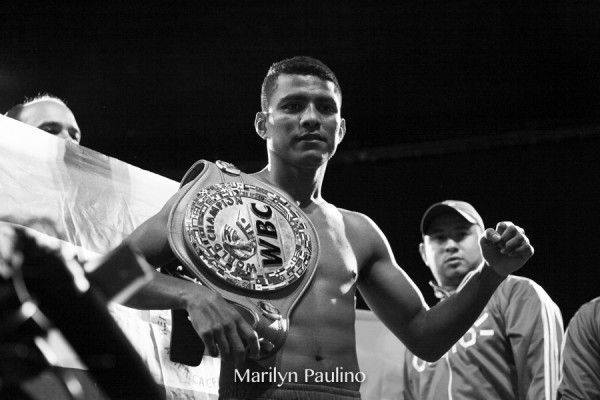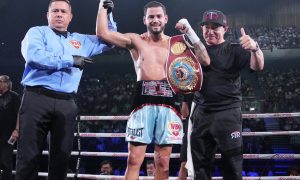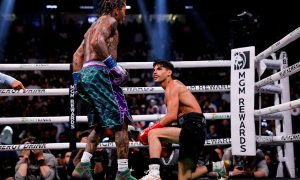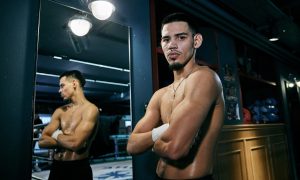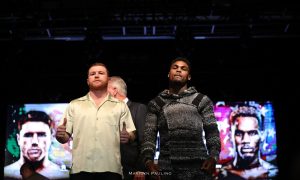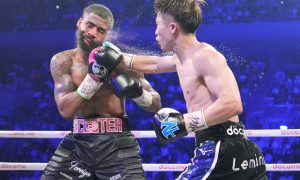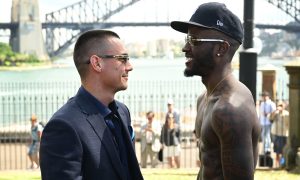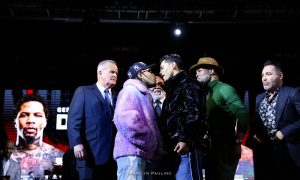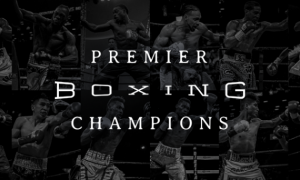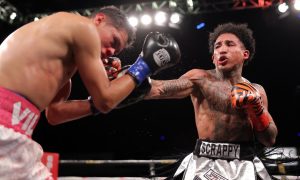Respect is often earned and not given. However, in the sport of boxing, those who deserve respect do not always receive it.
Unlike most sports, a loss in boxing can be more detrimental to one’s career than in almost any other sport.
A few weeks ago, mixed martial arts (MMA) superstar Conor McGregor made his return to the sport headlining a major pay-per-view and faced an opponent in Donald Cerrone with a 36-13 record.
MMA and boxing are different sports, and the way losses are viewed is one of the most significant differences.
The moment referee Thomas Taylor counted to 10 in September 2017 to award Srisaket Sor Rungvisai with a knockout victory over the man considered to be the best pound-for-pound fighter in the world, Roman “Chocolatito” Gonzalez (48-2, 40 KOs) had been written off by most of the boxing world.
There were always detractors to Gonzalez wearing the crown as the best fighter in the world. A distinction that was put upon him when Floyd Mayweather Jr. retired for the second time from boxing following his bout with Andre Berto in September 2015.
Even with the variety of available options to now watch boxing, fighters below Featherweight have always had trouble getting respect.
Weight classes like Super Flyweight (115 lbs.), Bantamweight (118 lbs.) and Strawweight (105 lbs.) are often largely ignored by most boxing media.
Naseem Hamed in the 1990s brought attention to the Featherweight division with his vaunted punching power.
In the 2000s, fighters like Erik Morales, Marco Antonio Barrera, Juan Manuel Marquez and Manny Pacquiao kept the attention in the lower weight classes headlining various major pay-per-view events.
Gonzalez was able to bring attention to the Flyweight and Super Flyweight divisions in the 2010s.
Fighters below Featherweight face the same struggles inside the ring that all fighters do, but they also have to combat the media that largely minimize their accomplishments.
It wasn’t surprising when the Boxing Writers Association of America (BWAA) didn’t nominate Gonzalez for the Joe Louis Fighter of the Decade award.
Currently, publications like BoxRec, Ring Magazine, Yahoo Sports and ESPN have him nowhere near the top 10 of their pound-for-pound lists.
While he is still ranked in the top 10 of the Super Flyweight division, any notion of him returning to the pound-for-pound throne has been swept under the rug.
From 2010-2019, Gonzalez fought a total of 26 times, ending the decade with a 24-2 record with 20 knockouts.
The Nicaraguan was able to score victories over the likes of current WBC Super Flyweight champion Juan Francisco Estrada, Brian Viloria, Akira Yaegashi, Carlos Cuadras, McWilliams Arroyo and Edgar Sosa.
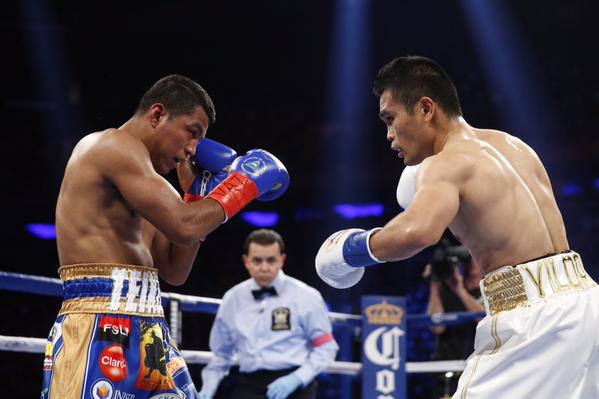
Ed Mulholland/HBO Boxing
In the 2010s, Gonzalez became the first fighter in boxing history to become a four-division champion at Strawweight, Junior Flyweight, Flyweight and Super Flyweight.
Throughout all four divisions, Gonzalez faced the top fighters each weight class had to offer.
When he defeated Cuadras in September 2016 for the WBC Super Flyweight title, Gonzalez became the first Nicaraguan four-division champion.
This accomplishment was something his mentor, Alexis Arguello, was unable to do in his illustrious career.
Since losing to Rungvisai, Gonzalez has stepped back in the squared circle twice.
He returned on the undercard of the second encounter between Canelo Alvarez and Gennadiy Golovkin in September 2018 against Moises Fuentes, scoring a fifth-round stoppage.
Gonzalez was scheduled to make a return to the ring later in the year; however, a right knee injury that would require surgery kept him out of the ring.
The Nicaraguan wouldn’t return to the ring until December 2019 when he faced the Philippines’ Diomel Diocos in Japan. Gonzalez would make quick work of Diocos, scoring a second-round stoppage.
Before the bouts with Rungvisai, Gonzalez suffered a tremendous setback in his career as his head trainer who had been with him for the majority of his career, Arnulfo Obando, tragically died from a stroke.
Gonzalez has gone through several trainers since losing Obando, even having his father, Luis Gonzalez assist in his training. For now, it seems he has settled on Marcos Caballero.
After almost three years out of the world title picture, Gonzalez will challenge current WBA Super Flyweight champion Khalid Yafai (26-0, 15 KOs) on February 29 in Frisco, Texas.
Yafai, who hails from Birmingham, England, will be attempting to make his sixth successful title defense. The United Kingdom native had an extensive amateur career; however, professionally, his resume lacks substance.
As of now, Yafai’s most significant victories are against Luis Concepcion, Sho Ishida and David Carmona. Gonzalez will be a step-up in competition, and the first big name Yafai will have faced.
Fighters in the lower weight classes below Featherweight traditionally don’t have a long shelf life in boxing.
Gonzalez, at 32 years of age, is no longer in his prime, and at Super Flyweight, he hasn’t shown the same vaunted power he showed at Flyweight or Junior Flyweight.
With Yafai being the first real test for Gonzalez since facing Rungvisai, fans and pundits will wonder if they will see the Chocolatito of old. A pressure fighter with proper range and distance who could cut off the ring while being defensively responsible.
While a victory over Yafai for Gonzalez won’t win him back the pound-for-pound crown, it will hopefully garner him some respect from those who treat fighters like they are disposable.





